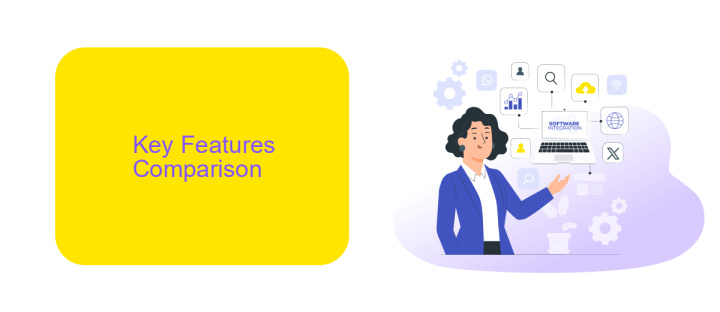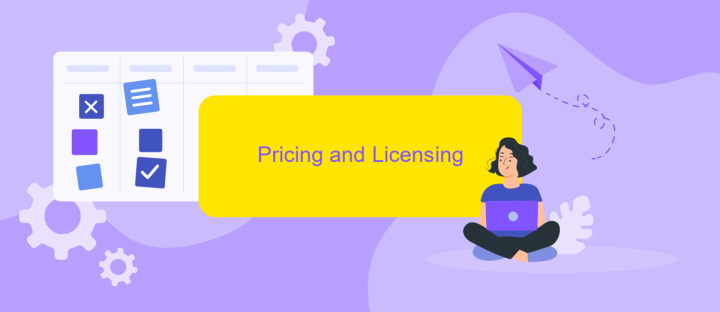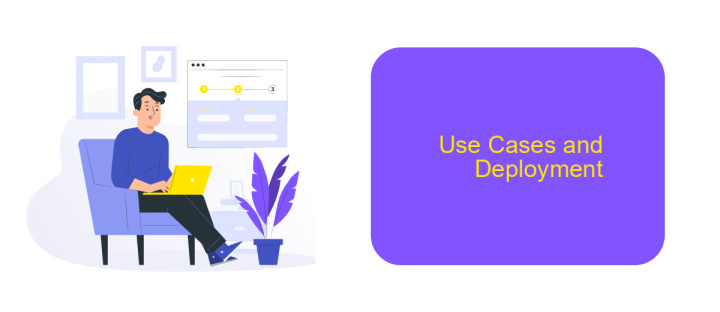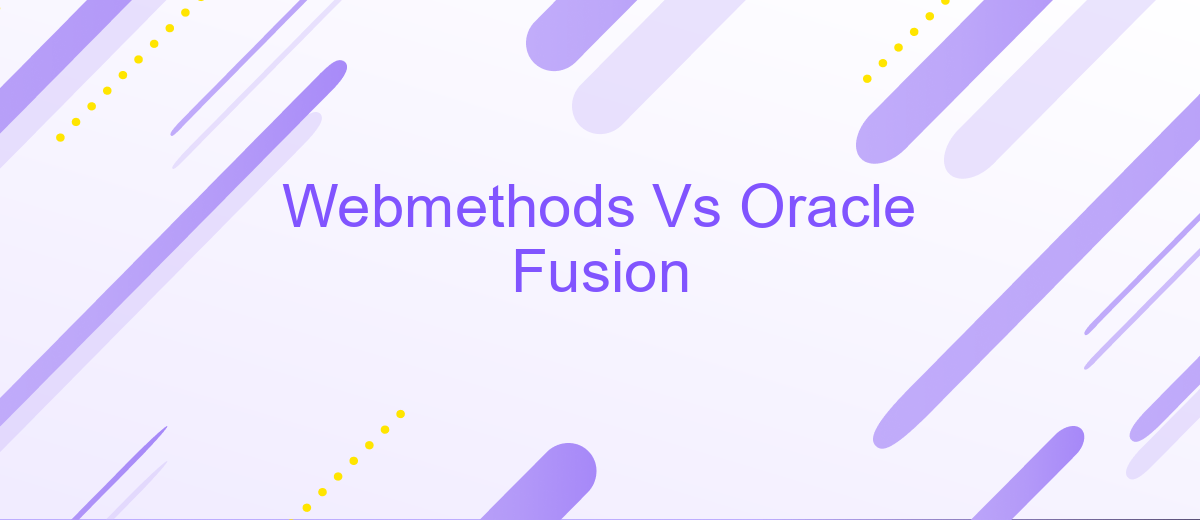Webmethods Vs Oracle Fusion
In the rapidly evolving landscape of enterprise integration, choosing the right middleware platform is crucial for seamless operations. This article delves into a comparative analysis of two leading integration solutions: Webmethods and Oracle Fusion. By examining their features, performance, and scalability, we aim to provide insights that can help businesses make informed decisions tailored to their specific needs.
Introduction
In today's rapidly evolving digital landscape, businesses are increasingly relying on robust integration platforms to streamline their operations and ensure seamless data flow between various systems. Two prominent solutions in this space are Webmethods and Oracle Fusion, both of which offer comprehensive tools for enterprise integration and process automation.
- Webmethods: A versatile platform known for its strong capabilities in application integration, API management, and B2B integration.
- Oracle Fusion: A suite of cloud-based applications designed to facilitate enterprise resource planning (ERP), customer relationship management (CRM), and supply chain management (SCM).
Choosing the right integration platform can significantly impact an organization's efficiency and agility. While Webmethods excels in providing flexible integration solutions, Oracle Fusion offers a unified suite of applications that cater to various business needs. Additionally, tools like ApiX-Drive can further enhance integration efforts by offering no-code solutions for connecting different applications and automating workflows. Understanding the strengths and limitations of each platform is crucial for making an informed decision that aligns with your business objectives.
Key Features Comparison

Webmethods and Oracle Fusion both offer robust integration solutions, but they differ in key features. Webmethods provides a comprehensive suite that includes API management, B2B integration, and IoT capabilities. Its strong emphasis on real-time data synchronization and business process automation makes it a versatile tool for enterprises. Webmethods also supports extensive cloud and on-premise deployments, offering flexibility in how businesses manage their integrations.
Oracle Fusion, on the other hand, excels in its seamless integration with Oracle's extensive suite of applications. It offers advanced analytics, AI-driven insights, and a unified data model that enhances decision-making processes. Oracle Fusion's strength lies in its ability to provide end-to-end business process management, from financials to supply chain operations. For businesses looking for a more straightforward integration solution, services like ApiX-Drive can simplify the process by offering easy-to-use tools for connecting various applications and automating workflows without extensive coding.
Pricing and Licensing

When comparing the pricing and licensing models of Webmethods and Oracle Fusion, it's crucial to consider the specific needs of your organization. Both platforms offer robust integration solutions, but their cost structures can vary significantly.
- Webmethods: Webmethods typically offers a subscription-based pricing model. The cost can vary based on the number of users, the volume of data processed, and the specific modules and features required. Custom pricing is often available for larger enterprises.
- Oracle Fusion: Oracle Fusion operates on a similar subscription-based model but is known for its comprehensive suite of applications. Pricing can depend on the number of users, the types of applications deployed, and the level of support needed. Oracle also offers flexible licensing options, including cloud-based and on-premises solutions.
For organizations looking to streamline their integration processes, tools like ApiX-Drive can be invaluable. ApiX-Drive offers an affordable and user-friendly solution for automating data transfer between various applications, which can complement both Webmethods and Oracle Fusion by simplifying integration tasks and reducing overall costs.
Use Cases and Deployment

When considering Webmethods and Oracle Fusion for your enterprise integration needs, it's essential to understand their specific use cases and deployment scenarios. Webmethods is often favored for its robust integration capabilities, especially in complex IT environments where multiple systems need to communicate seamlessly. It excels in scenarios requiring high data throughput and real-time processing.
Oracle Fusion, on the other hand, is highly suitable for organizations already invested in Oracle's ecosystem. It offers a comprehensive suite of applications and services that integrate smoothly with Oracle databases and other Oracle products. This makes it an excellent choice for businesses looking to streamline their operations within the Oracle environment.
- Webmethods: Ideal for complex, multi-system integrations requiring high data throughput.
- Oracle Fusion: Best for organizations deeply integrated with Oracle's ecosystem.
- ApiX-Drive: Useful for automating and simplifying integrations between various applications and services.
Both platforms offer unique advantages depending on your specific requirements. While Webmethods provides extensive customization and real-time data processing, Oracle Fusion excels in providing a unified environment for Oracle-centric businesses. Additionally, tools like ApiX-Drive can further enhance your integration efforts by automating and simplifying the connection between various applications and services.
Conclusion
In conclusion, both Webmethods and Oracle Fusion offer robust solutions for enterprise integration, each with its own set of strengths. Webmethods excels in providing a versatile and scalable platform that can handle complex integration scenarios with ease. Its extensive support for various protocols and formats makes it a strong contender for businesses with diverse integration needs. On the other hand, Oracle Fusion stands out with its comprehensive suite of cloud-based applications and services, offering deep integration with other Oracle products and a powerful set of tools for managing business processes.
Ultimately, the choice between Webmethods and Oracle Fusion will depend on the specific requirements and existing infrastructure of your organization. For those looking to simplify the integration process further, ApiX-Drive can serve as a valuable tool. This service offers a user-friendly interface for setting up integrations without the need for extensive coding, making it easier for businesses to connect various applications and automate workflows efficiently. By carefully evaluating your needs and leveraging the right tools, you can ensure a seamless and effective integration strategy.
FAQ
What are the key differences between Webmethods and Oracle Fusion?
Which platform is better for cloud integration?
Can I use third-party services to facilitate integration with Webmethods or Oracle Fusion?
How do Webmethods and Oracle Fusion handle real-time data processing?
What are the typical use cases for Webmethods vs. Oracle Fusion?
Apix-Drive will help optimize business processes, save you from a lot of routine tasks and unnecessary costs for automation, attracting additional specialists. Try setting up a free test connection with ApiX-Drive and see for yourself. Now you have to think about where to invest the freed time and money!

